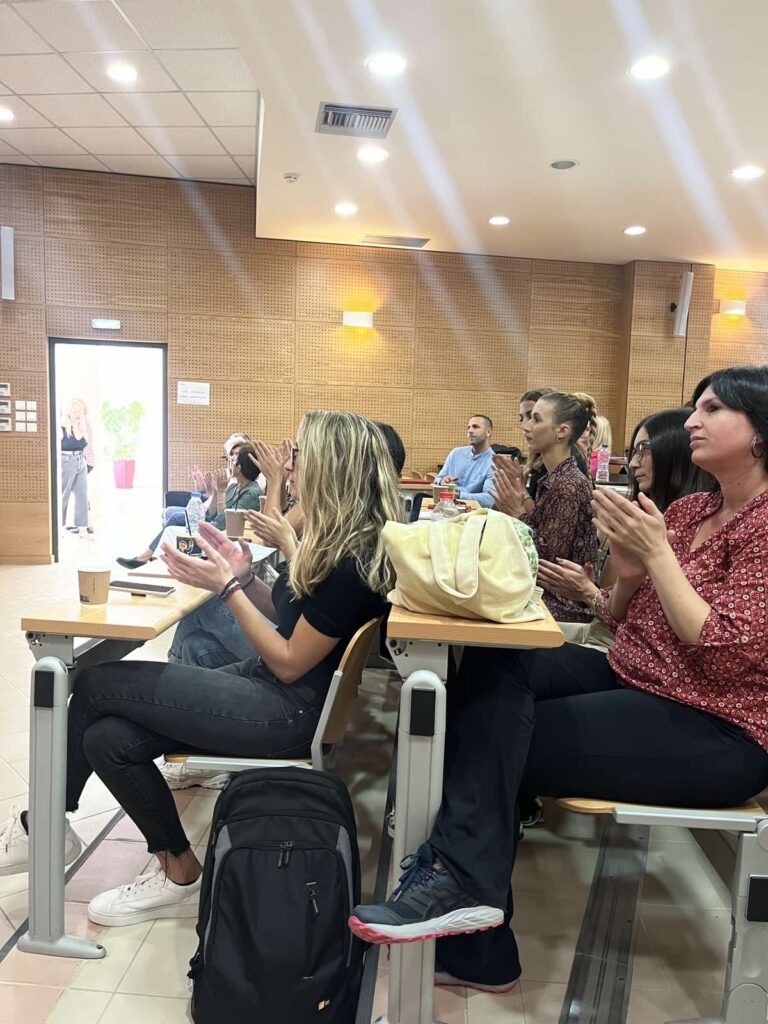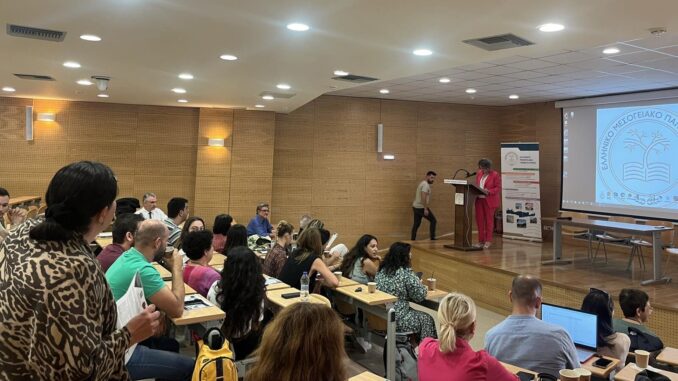
The Hellenic Mediterranean University (HMU) and the HMU Office of Counseling and Psychological Support, organized a conference on “Social Welfare Interventions to support the Student Community of the Hellenic Mediterranean University: Findings, Suggestions and Perspectives” within the framework of an EU-funded project MIS 5045937.
The event took place on Tuesday 31/10/2023 at the Amphitheater of the School of Health Sciences.
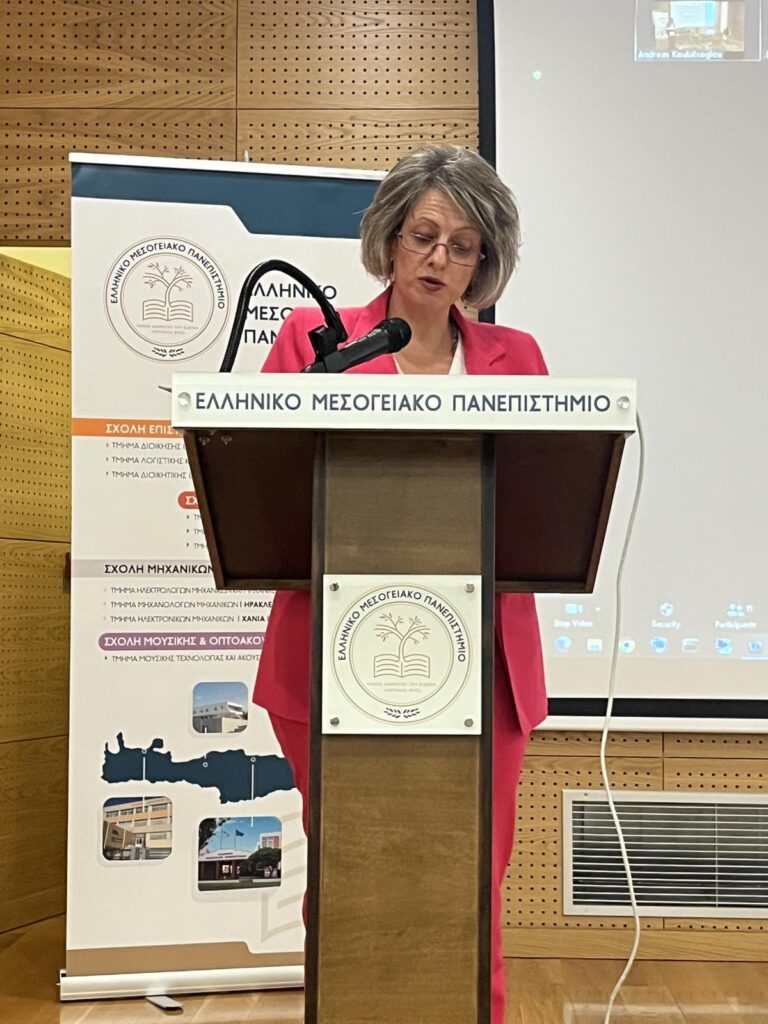
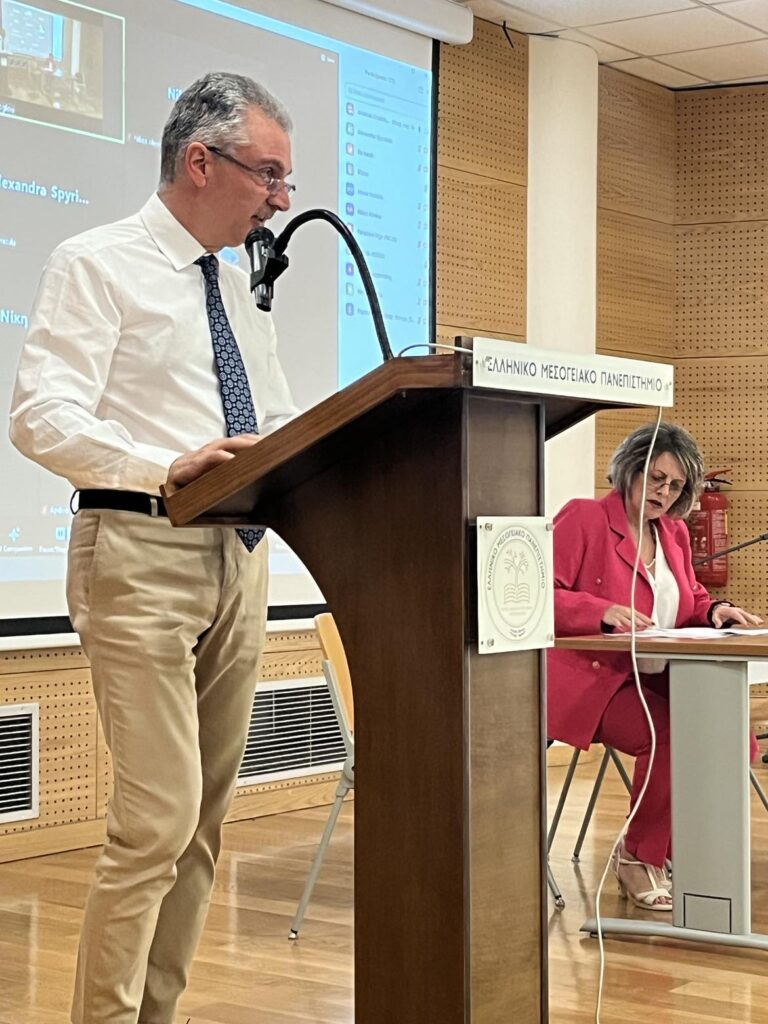
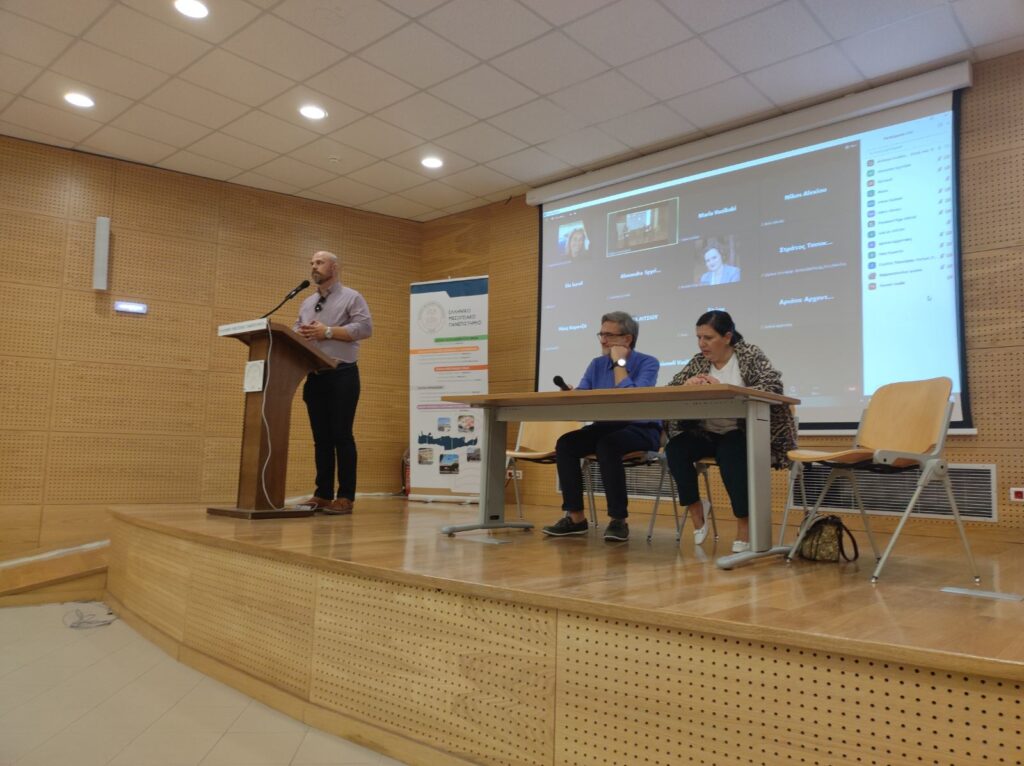
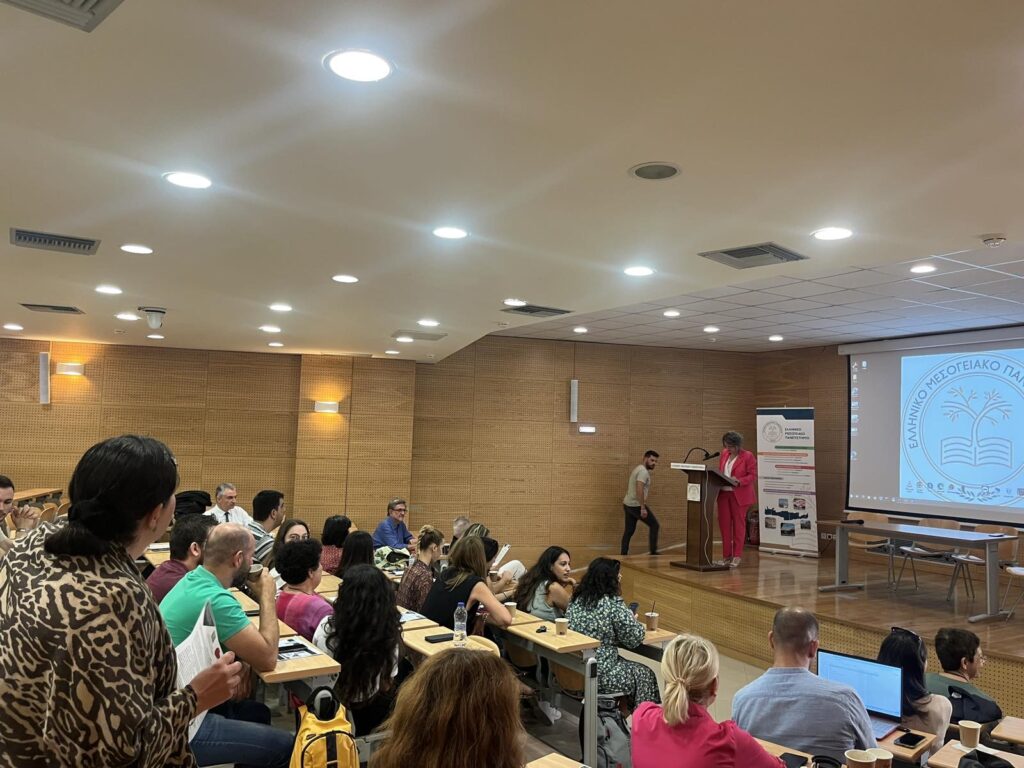
The first round table discussion entitled “Psychosocial and Educational Support Services for HMU students. From theory to practice” presented all the innovative work carried out within the framework of the project. Among the speakers of the first round table, were Mrs. Anastasaki Maria, Psychiatrist, Scientific Associate of the HMU counseling centre, Mrs. Sarakatsianou Flora, Psychologist-Msc and Systemic Psychotherapist, Mrs. Koufoudi Timoklia, Psychologist-Msc and Cognitive-Behavioral, Psychotherapist , Mrs. Karapiperaki Maria, nurse, Mr. Tsouvalakis Georgios, doctor, Mrs. Spyridaki Alexandra, Special Educator, Mr. Migadakis Yiannis, Special Education Mathematician, Mrs. Kounali Vassiliki, Psychologist, Associate of the HMU counseling centre and Doctoral Candidate Department of Social Work, HMU, Mrs. Papadaki Andriani, Psychologist , Doctor of the University of Crete, Mr. Emmanuel Loukadakis, Psychologist, MSc Special Education, Family Psychotherapist.
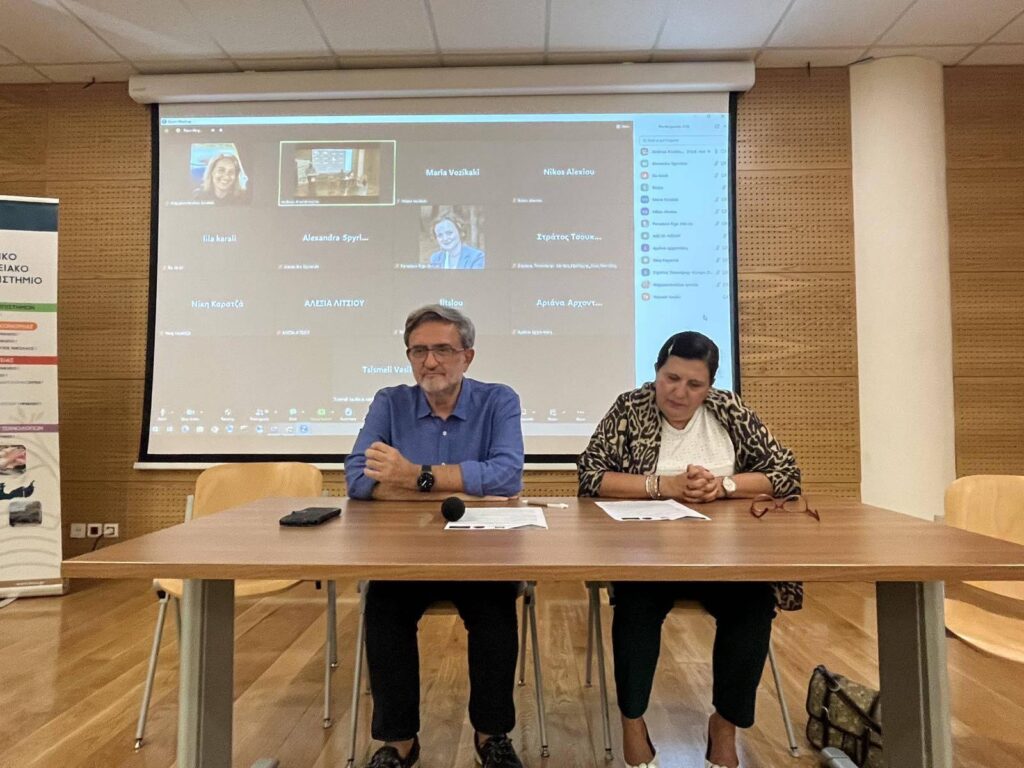
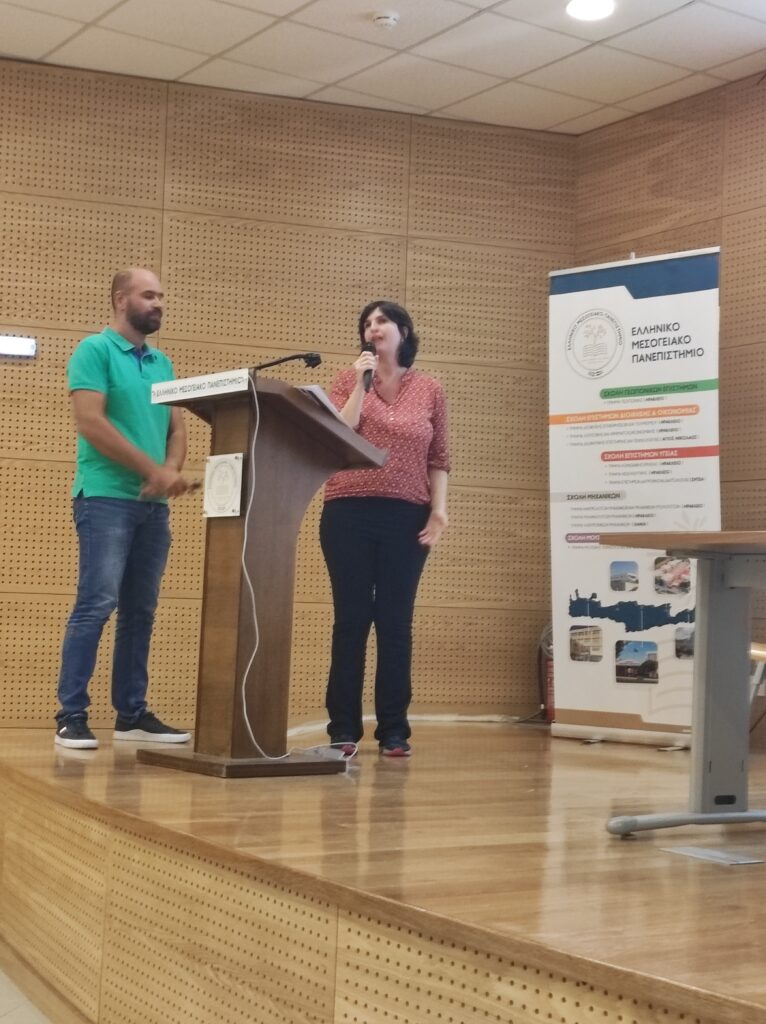
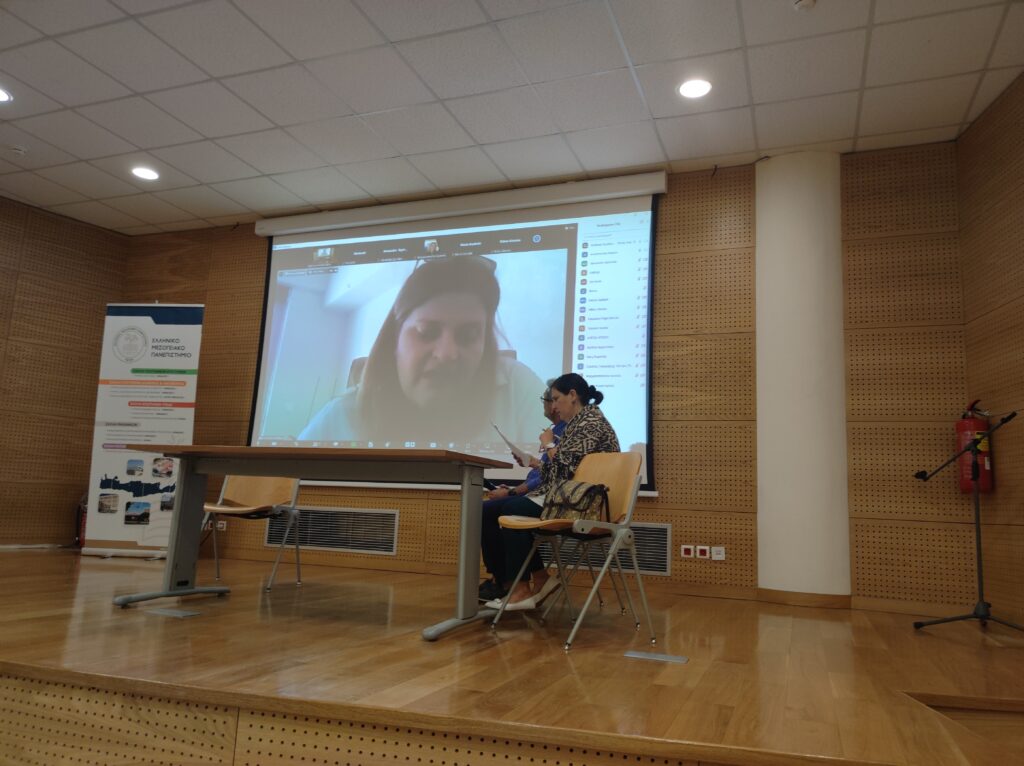
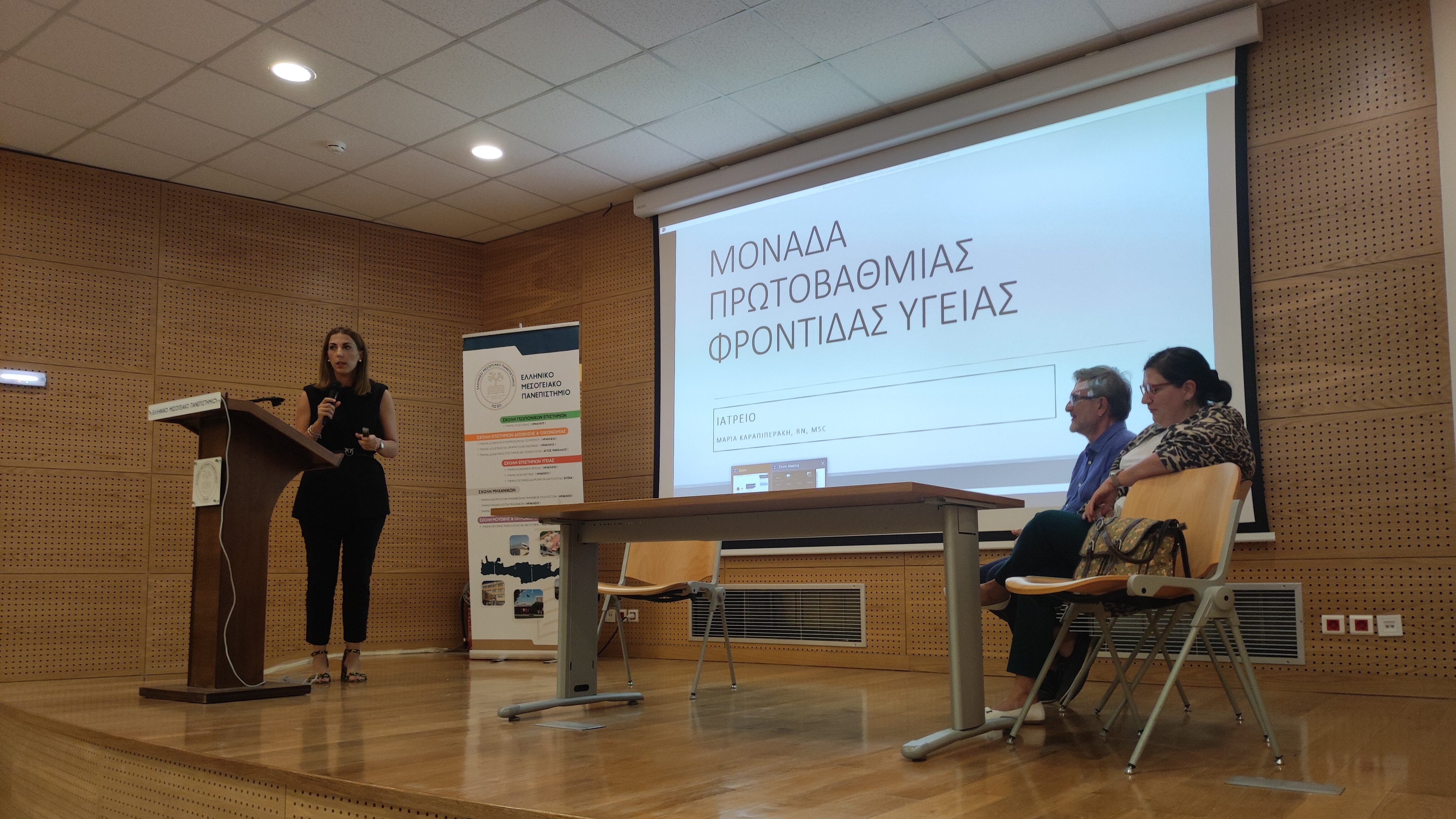
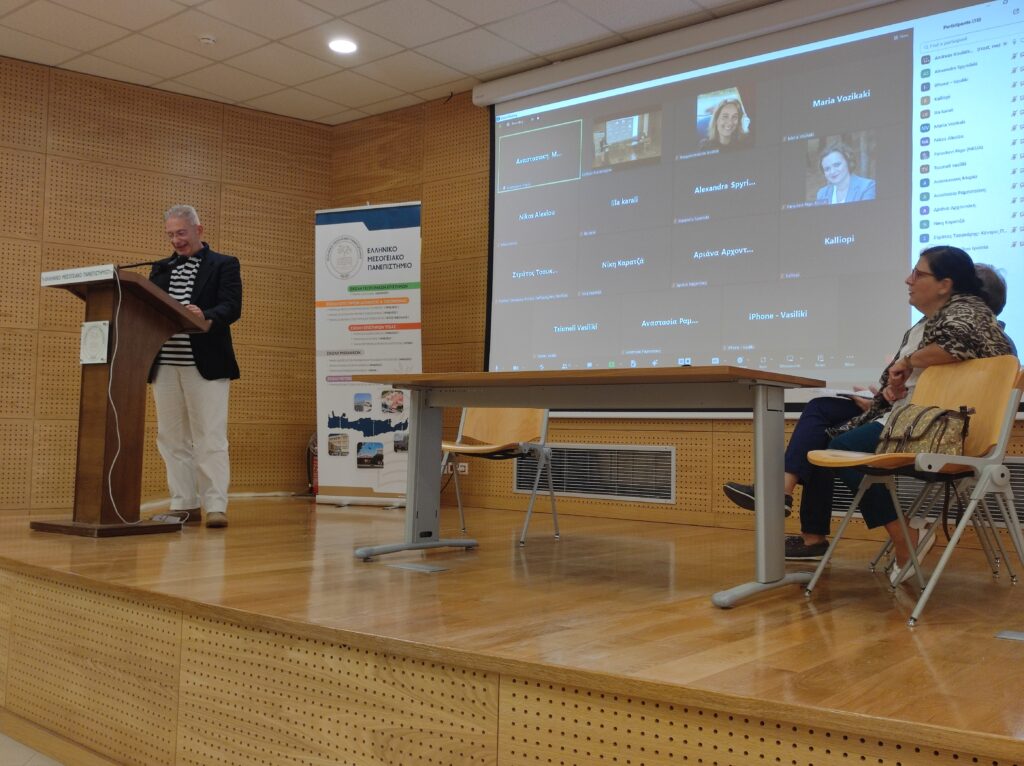
The second round table had the theme “Good practices for the psychosocial support of students in Greek Universities” and invited speakers from academic institutions of the country, with the aim of exchanging valuable experience in the field of supporting the student community. Specifically, the presenters were Mrs. Riga Paraskevi, associate of the Accessibility Unit of the National Kapodistrian University of Athens (NKUA), Dr. Ampeliotis Konstantinos, Vice-Rector of Finance and Planning of Harokopio University, former Vice-Rector of Student Affairs, Mr. Alexiou Nikos, Psychologist- Psychotherapist, Head of the Department of Social Care, Counseling and Psychological Support of the University of Western Attica (UNIWA), Mr. Tsoukaris Stratos, Clinical Psychologist – Executive of the Prevention Center of Chios “Nautilos”, partner of Aegean University, Ms. Kritikou Marina, PhDc Counseling Psychology and Ms. Smargianaki Maria, MEd. of Educational Psychology from the Student Counseling Center of Rethymnon. At the end of the second round table, Dr. Farmakopoulou Ignatia made a statement on behalf of the University of Patras.


Much of the discussion was devoted to two innovative interventions of HMU that stand out at the national level and attracted the attention of the other universities of the country.
The first innovation concerns the “Educational Support Center” that operates at the Hellenic Mediterranean University within the “Primary Health Care Unit”, and provides individualized educational support to students facing learning difficulties, WITH or WITHOUT certification of the learning difficulty. In particular, two (2) specialized special education teachers, philology and mathematics, full-time and morning jobs, provide on a daily basis, individual sessions to HMU students with learning difficulties, in theoretical and positive orientation courses. Among other things, resources of the project were utilized, to purchase diagnostic tools for the detection of learning difficulties and the assessment of the students’ mental potential, with appropriate training of the staff in their use. Under these circumstances the HMU Educational Support Center can now detect difficulties that remained undiagnosed during Primary and Secondary education with a significant mental burden on individuals and with an impact on their current academic life. However, the most important benefit of this process is the personalized support that students can now receive based on their real needs. From this innovative practice, which had impressive results during the project, there arose a strong need to institutionalize the procedures for diagnosis, assessment and personalized support of students with learning difficulties in higher education through the University Counseling Centers.
The second innovation concerns the institutional observatory of socially vulnerable groups of students, which was developed by the Hellenic Mediterranean University in order to monitor specific factors (indicators) that affect the academic performance of students. The social observatory has a special electronic platform for the registration of information. The data – after the written consent of the student – is collected automatically and coded, in a single database, for processing and extracting aggregate statistics. For the collection and management of the data, a special protocol of sensitive personal data has been formulated that clearly defines the legal issues that arise. The observatory contributes significantly to the systematic evaluation of the effectiveness of the institution’s strategies and practices in matters of accessibility, quality and adequacy of the services offered to students, as well as to the development of policy-making recommendations to the institution’s Management Board.
In closing, questions were posed to the presenters and a discussion followed, while the need to take corresponding initiatives such as this conference was highlighted, with the aim of spreading good practices in the country’s academic community.
